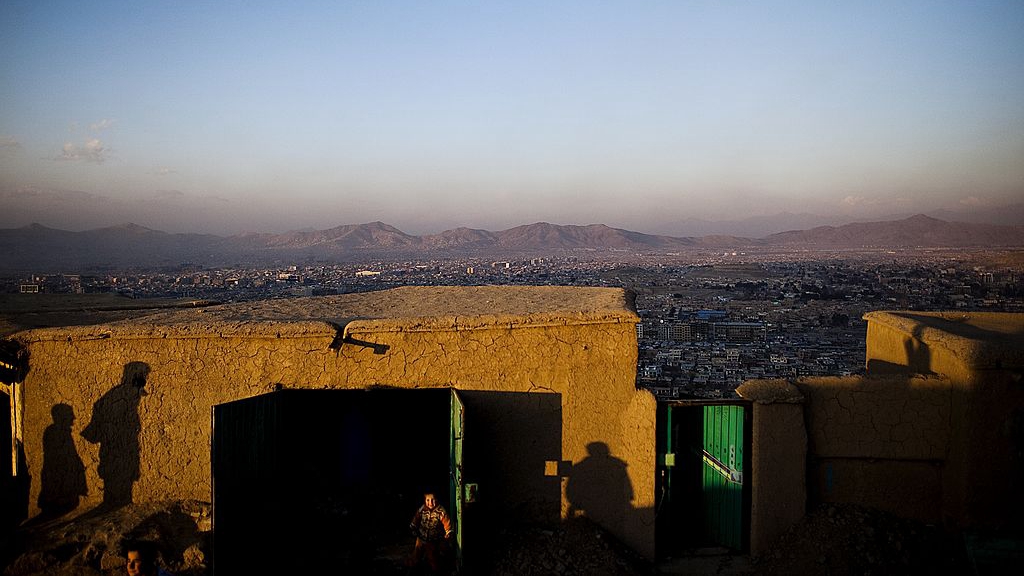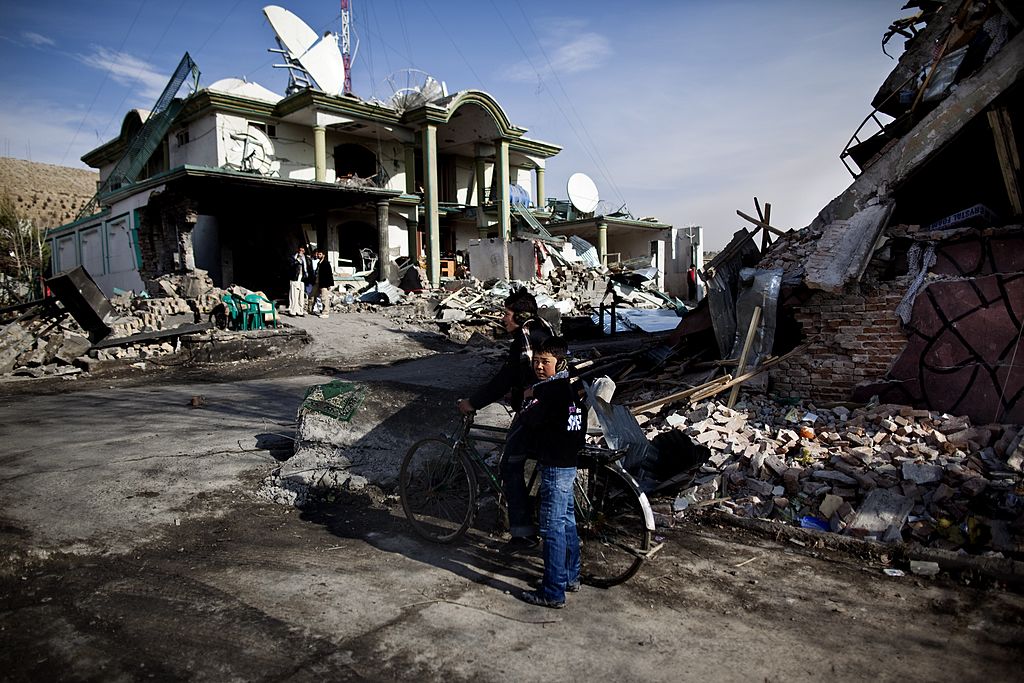
An Afghan child plays in last rays of the setting sun on the twisting hillside road that leads to Kabul's "TV tower" hill in Kabul, Afghanistan, December 16, 2009. /Getty
An Afghan child plays in last rays of the setting sun on the twisting hillside road that leads to Kabul's "TV tower" hill in Kabul, Afghanistan, December 16, 2009. /Getty
Editor's note: Hamzah Rifaat Hussain is a former visiting fellow at the Stimson Center in Washington and serves as an assistant researcher at the Islamabad Policy Research Institute (IPRI) in Pakistan. The article reflects the author's opinions and not necessarily the views of CGTN.
While scant positive attention has been paid in Western media outlets to Afghan delegation-level talks held in Iran, the outcome of the negotiations in Tehran was significant. They underline the importance of brokering peace through regional platforms in the absence of orchestrated peace frameworks that are imposed instead of facilitated.
Both the government in Kabul and the Taliban were proportionately represented and aired their differences while issuing a joint statement affirming that violence will only be detrimental towards resolving the Afghan quagmire. Given the country's current fragile political environment, initiatives aimed at breaking the ice between conflicting parties can potentially resolve current impasses and avert future ones too.
The reasons are obvious. These delegation-level talks stand in stark contrast to the Doha Peace Deal of 2020 reached between the Trump administration and the Taliban delegation which excluded the Ashraf Ghani government and the president of the High Council for National Reconciliation, Abdullah Abdullah.
Furthermore, the hastily prepared arrangement failed to enshrine clauses emphasizing that renunciation of violence as a prerequisite for internal negotiations, with the focus squarely been on securing U.S. troop withdrawals amid guarantees from the Taliban that they would not attack American forces. The after-effects have been detrimental with widening trust deficits between different parties and misinterpretations and miscalculations coming to the fore with escalating violence.
On the other hand, these delegation level talks hosted by a regional power in close geographical proximity to Afghanistan were aimed solely at breaking the impasse towards constructive engagement and resolution of the crisis.
Note that the joint statement released in Tehran is also a joint understanding between the two sides that war is not the solution to the Afghan problem which also ushers in possibilities for constructive intra-Afghan dialogue to commence. By agreeing to continue conversations on frameworks through which peace can be achieved between the Taliban and the federal government, the talks in Tehran featured unanimous condemnation of the attacks against schools, hospitals and infrastructure in the country that need to stop immediately.
One of the major failures of American diplomacy in Afghanistan throughout its recent history has been the inability to forge consensus between all Afghan parties and given the withdrawal announcement and its operationalization in the country, Tehran has refrained from seeking to leverage its strategic location to secure geopolitical advantage by meddling in Afghan affairs.

Two young Afghan boys watch clean-up crews pick through the remains of several buildings destroyed by a suicide car bomb in Kabul, Afghanistan, December 16, 2009. /Getty
Two young Afghan boys watch clean-up crews pick through the remains of several buildings destroyed by a suicide car bomb in Kabul, Afghanistan, December 16, 2009. /Getty
Instead, similar to China, Russia and Turkey, the Iranian leadership opted for facilitation as an opportunity for dialogue towards the ultimate aim of securing a sustainable and inclusive political solution for the country.
While talks took place, emphasis was placed on the historic nature of the bilateral relationship and the need to avoid another civil war from materializing in the country to the detriment of domestic and regional peace. The entire process also has to be Afghan-led and Afghan-owned with Foreign Minister Javad Zarif considering the interests of the Afghan people to be of utmost importance in the wake of the 20-year defeat of U.S. forces in the country and the collateral damage that Washington D.C. has left behind.
The sole principle guiding the goodwill witnessed in Tehran is that conflicts having regional implications must be diffused through regional mechanisms divorced from great power politics or strategic interests. A breakdown in peace in Afghanistan should usher in constructive diffusion not confrontation which compromises the national security of the Afghan population.
Furthermore, regional stakeholders can explore avenues for the country's economic recovery through stimulus packages in the post-withdrawal scenario as well as provision of aid and assistance for war-torn populations and enhancing infrastructural development towards regional connectivity.
Equally important, however, is to allow conflicting parties to address their differences in an amicable way for which regional countries such as Iran and Turkey can play a positive role.
Even a U.S. State Department spokesman, Ned Price, himself claimed that regional powers need to play a constructive role in Afghanistan while admitting that Iran's outreach efforts could well and truly be just that. Few can question the fact, however, that the positive optics witnessed in Tehran can potentially be carried forward by both the government and Taliban delegations as major takeaways for Afghan peace.
(If you want to contribute and have specific expertise, please contact us at opinions@cgtn.com.)

